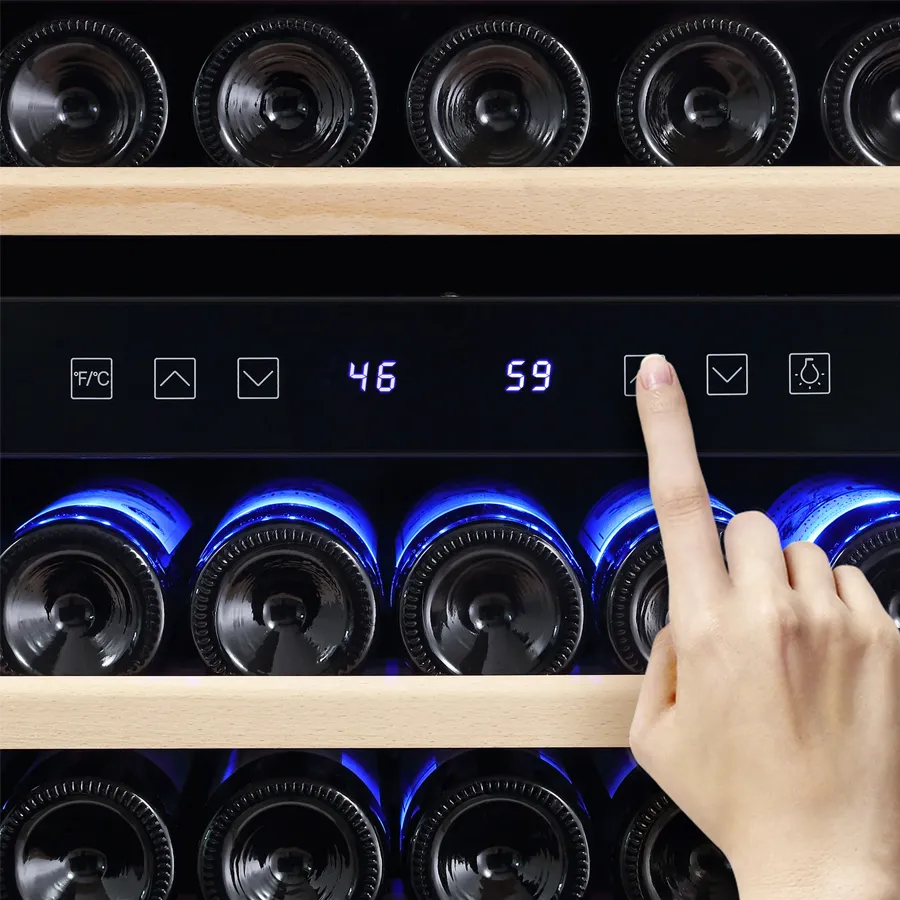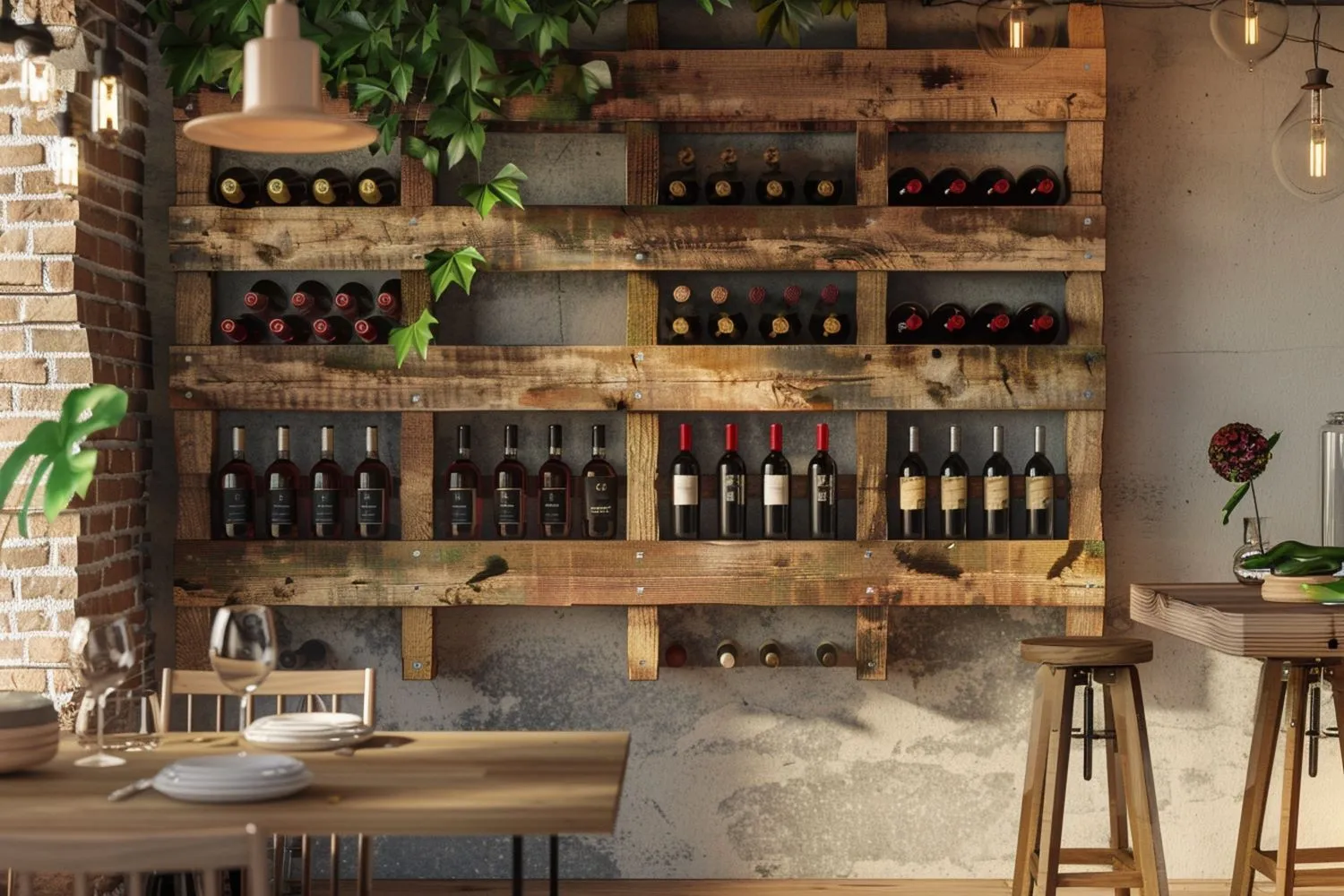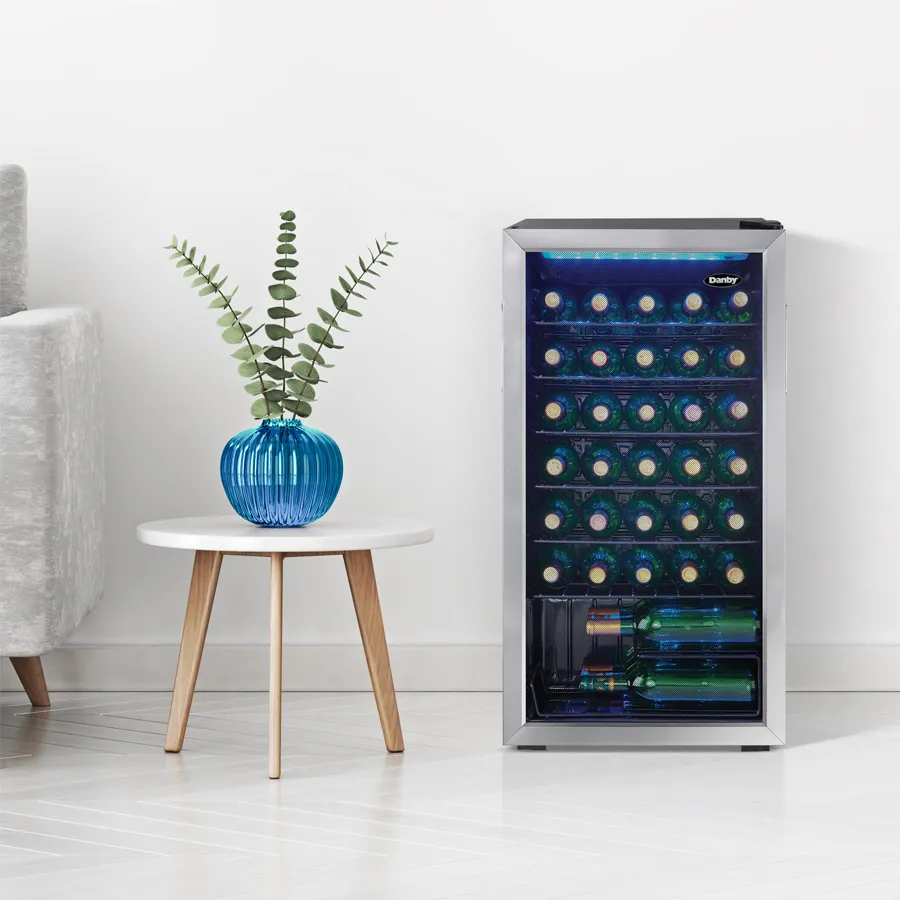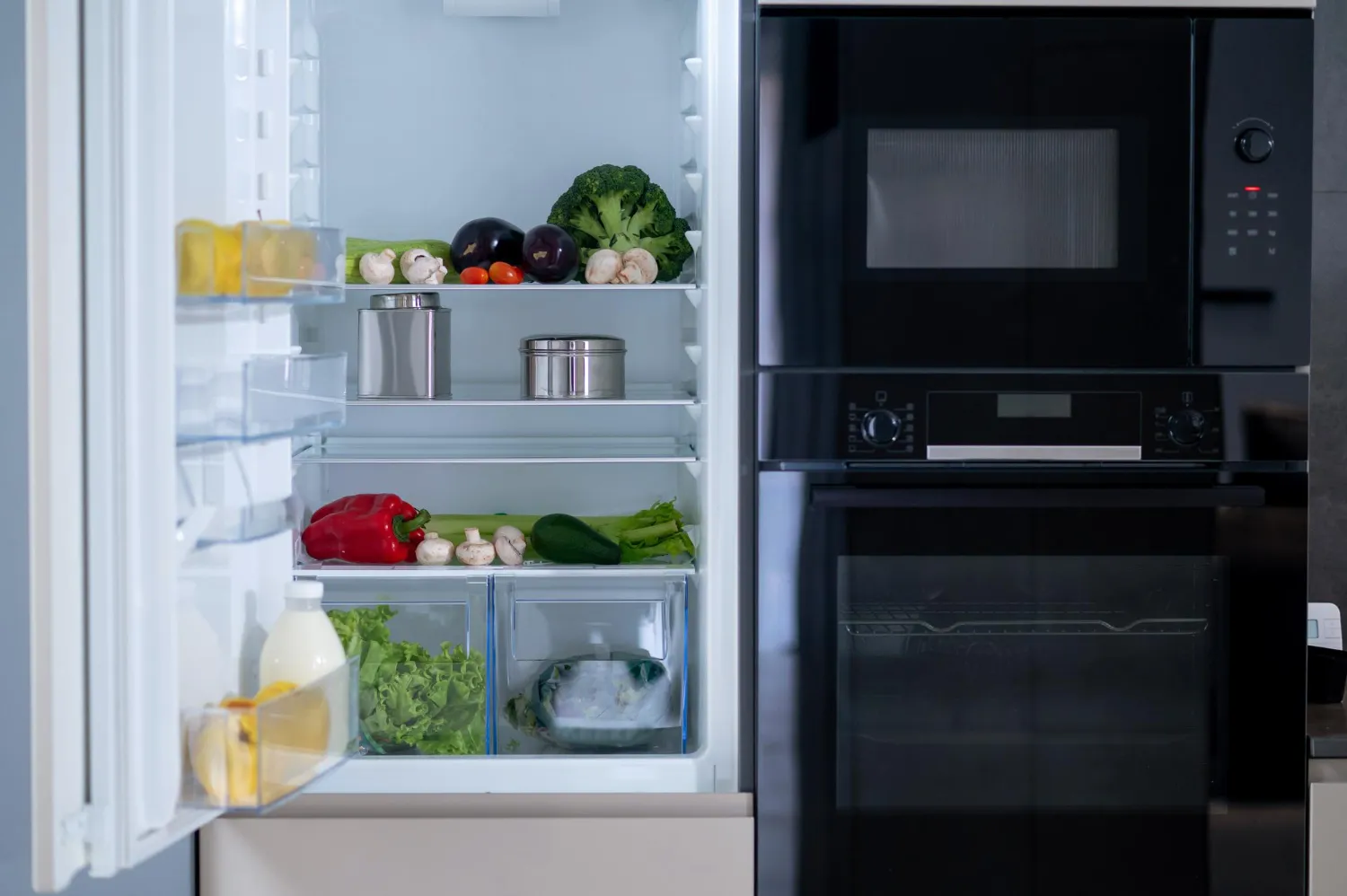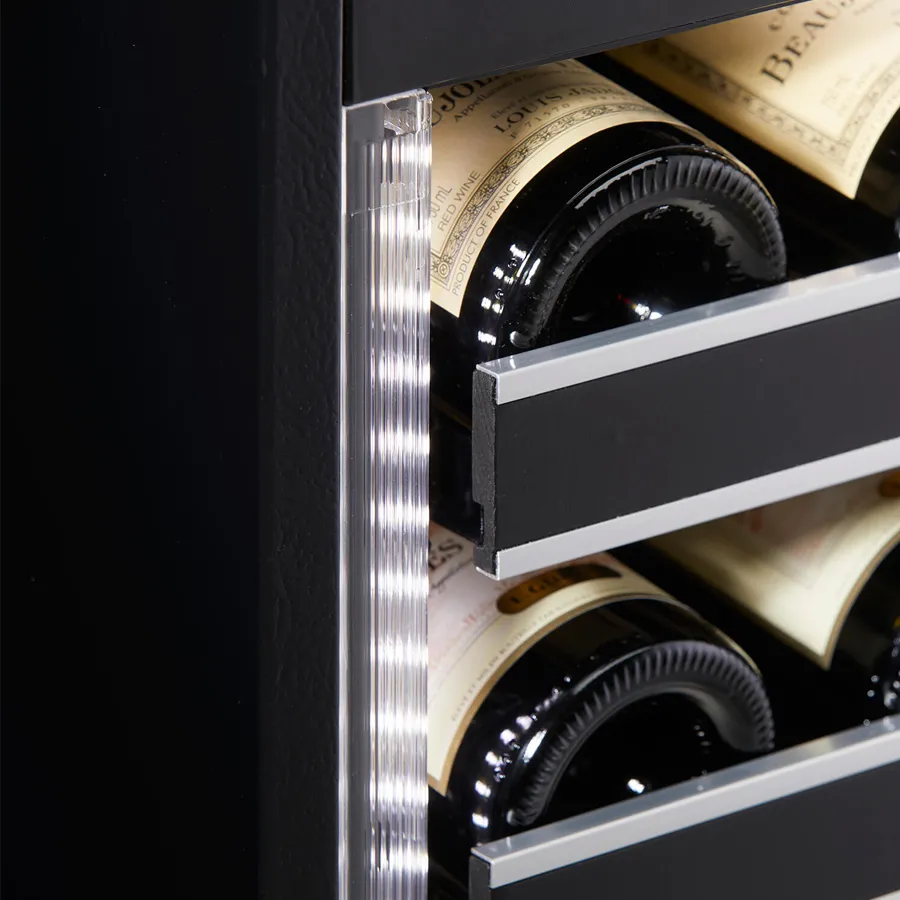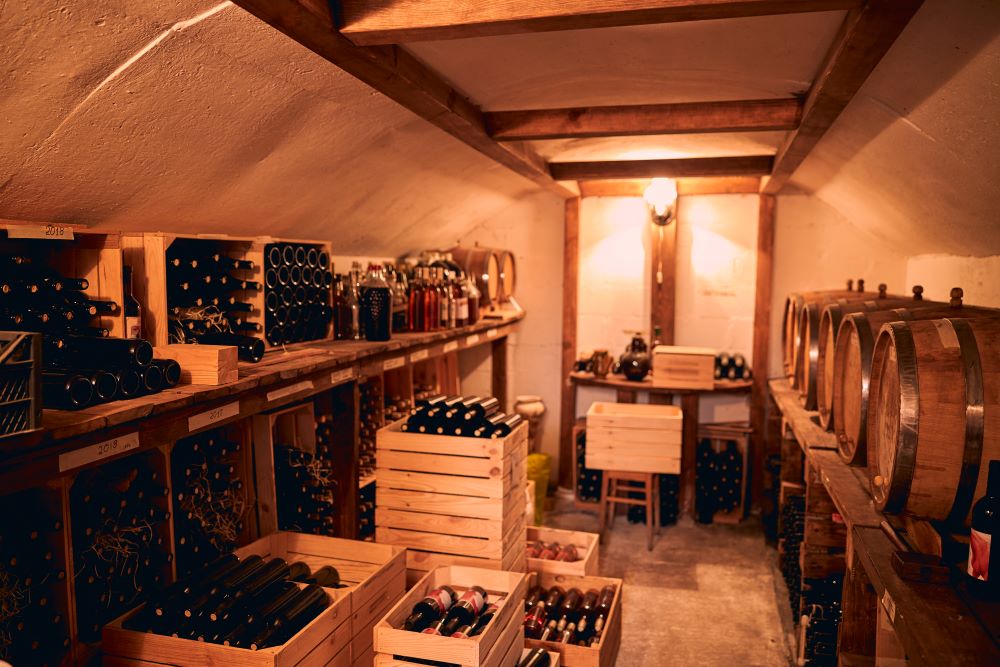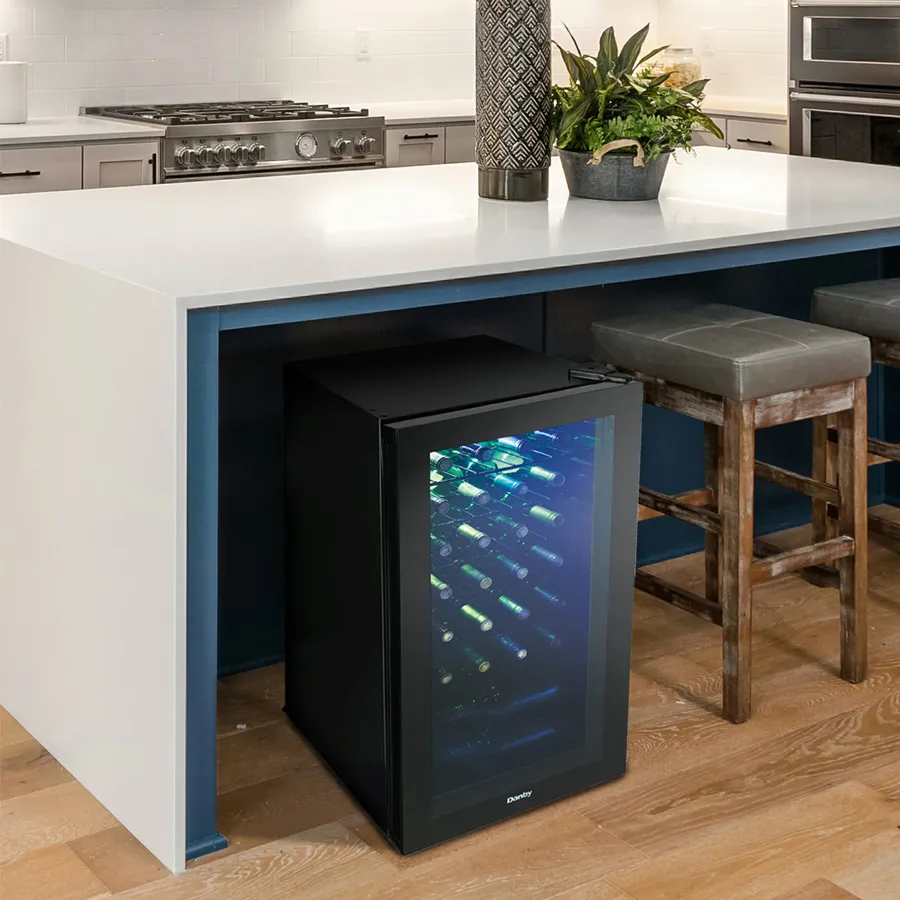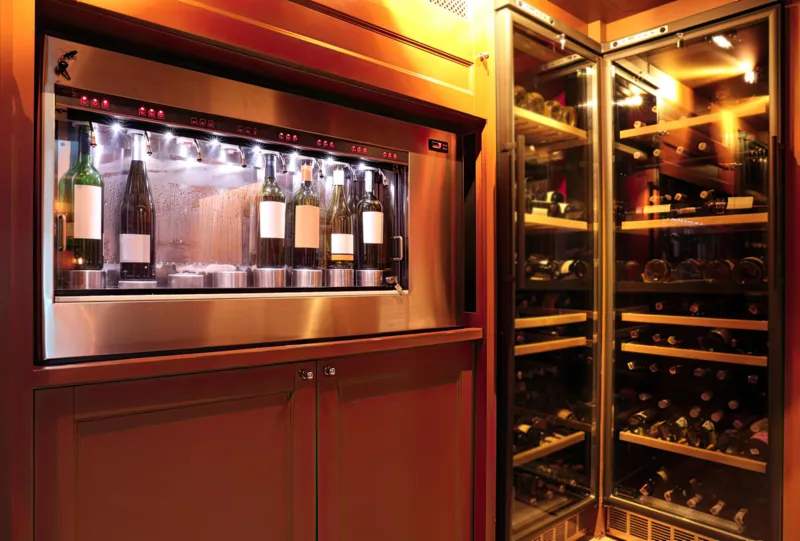One of the common concerns when it comes to wine coolers is the level of noise they produce. If you want to shop for a wine cooler, one of the important considerations to make is whether to opt for a compressor or a thermoelectric cooling system. In this blog post, we will delve into the noise factor of wine coolers and compare the noise levels of the compressor and thermoelectric wine coolers, helping you to make an informed decision for your oenological needs.
=> Read More: Are Wine Coolers Noisy? How to Avoid Them?
Noise Levels in Compressor Wine Coolers: About 35-45 decibels
Compressor wine coolers are known for their cooling efficiency, but they can also produce some level of noise during operation. The compressor and fan in these coolers can generate a low to moderate level of noise, which may be noticeable in quieter environments. A compressor wine cooler may not be the ideal choice if you are sensitive to noise or if the cooler will be placed in a living area where noise levels are a concern. However, advancements in compressor technology have led to quieter operation in many modern wine coolers.
=> Related Article: How Exactly Does a Compressor Wine Cooler Refrigerator Work?

Compressor wine coolers are known for their cooling efficiency, but they can also produce some level of noise during operation.
Noise Levels in Thermoelectric Wine Coolers: 32-35 dB
Cooling in thermoelectric wine coolers occurs without the use of noisy compressors, resulting in almost silent operation. The lack of moving parts, such as those found in compressor models, contributes to the overall quietness of thermoelectric wine coolers. This makes them an ideal choice for environments where noise levels need to be kept to a minimum, such as residential homes, offices, or libraries. Levels of noise in thermoelectric wine coolers are significantly lower compared to compressor wine coolers, making them a desirable option for those seeking a quiet cooling solution for their wine collection.
=> Related Article: How a Thermoelectric Wine Cooler Refrigerator Work?
Comparative Analysis: Compressor vs Thermoelectric Sytems
Now, let’s take a closer look at the comparative analysis of wine coolers, particularly in the context of noise level and efficiency. This will help us understand the differences between compressors and thermoelectric wine coolers and make an informed decision when choosing the right one for your needs.
=> Read More: Compressor vs Thermoelectric Winecooler: Which Is Better
Noise Level Comparison
For those concerned about the noise level of their wine coolers, it’s important to compare the two types. Compressor wine coolers tend to produce more noise due to the operation of the compressor, while thermoelectric wine coolers are generally quieter. Here’s a breakdown:
| Compressor Wine Coolers | Thermoelectric Wine Coolers |
| Produce more noise about 35 to 45 dB | Produce less noise: about 32 to 35 dB |

The compressor in a compressor wine cooler makes a lot of noise, whereas a thermoelectric wine cooler is far more silent.
Efficiency, Environmental, Vibration, Cost Considerations
For those looking for an energy-efficient and environmentally friendly option, it’s important to consider the efficiency and environmental impact of wine coolers. Compressor wine coolers tend to consume more energy and may release more greenhouse gases, while thermoelectric wine coolers are more energy-efficient and have a lower environmental impact. Here’s a breakdown:
| Compressor Wine Coolers | Thermoelectric Wine Coolers |
| Higher energy consumption | Lower energy consumption |
| May release more greenhouse gases | Lower environmental impact |
| More Vibration | Less Vibration |
| Affordable Cost | More Expensive |
Any environmentally conscious consumer should consider the lower energy consumption and lower environmental impact of thermoelectric wine coolers when making a purchase decision. This not only helps reduce energy costs but also contributes to a greener and more sustainable lifestyle.
=> Read More: Vibration-Free Wine Coolers: Thermoelectric Cooling Technology








